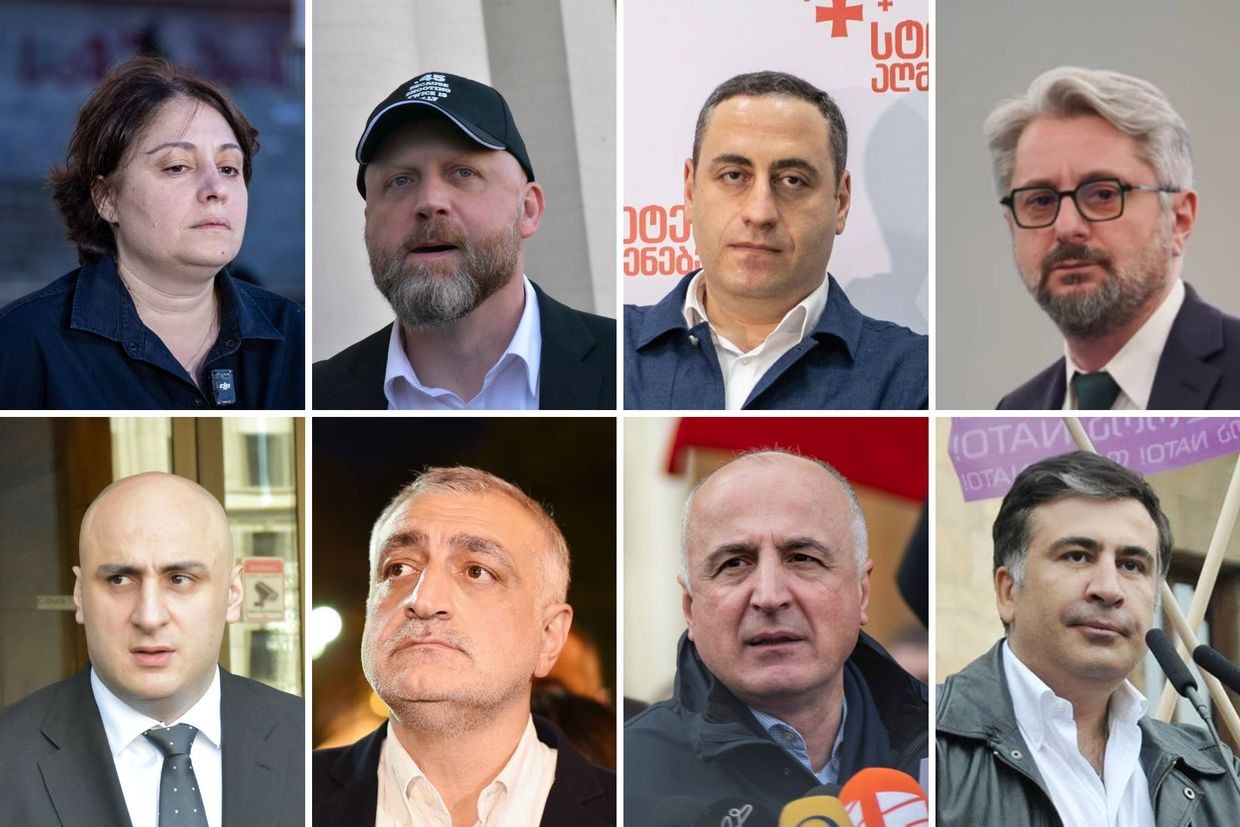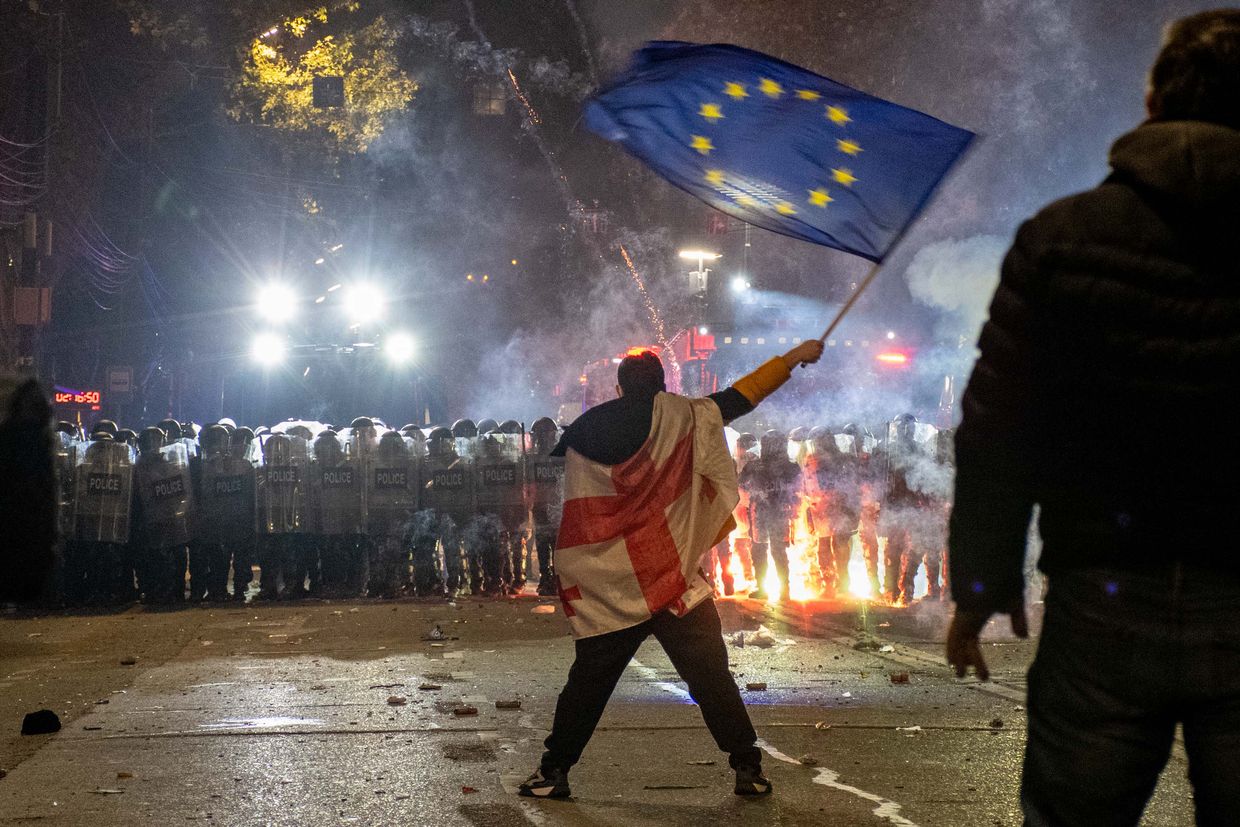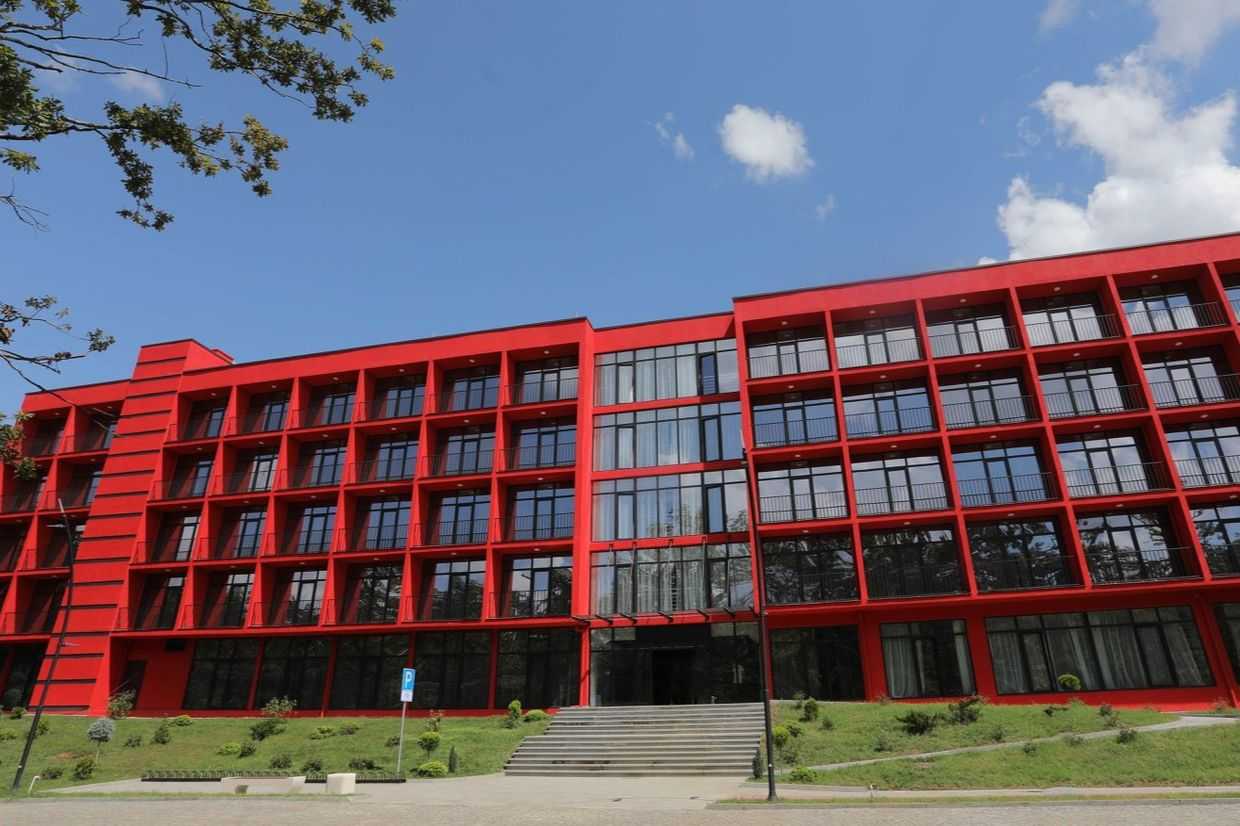
Georgian authorities have brought new charges against almost all major opposition leaders, including attempting to carry out a coup, sabotage, unlawful coordination with foreign countries, and more. Those charged face up to 15 years in prison if convicted.
The case, announced on Thursday, was launched jointly by Georgia’s Prosecutor General’s Office, the State Security Service (SSG), and the Interior Ministry.
The charges announced were as follows:
- Elene Khoshtaria, leader of Droa!: Sabotage (2-4 years in prison); assistance to a foreign country, foreign organisation or an organisation controlled by a foreign state in hostile activities (7–15 years); and financing of activities directed against the constitutional order and national security principles of Georgia or provision of other material support to such activities (6–10 years).
- Zurab Japaradize, leader of Girchi — More Freedom: Sabotage (2-4 years); assistance to a foreign country, foreign organisation or an organisation controlled by a foreign state in hostile activities (7–15 years).
- Giorgi Vashadze, leader of Strategy Agmashenebeli: Sabotage (2-4 years); assistance to a foreign country, foreign organisation or an organisation controlled by a foreign state in hostile activities (7–15 years).
- Nika Gvaramia, co-leader of Ahali: Sabotage (2-4 years).
- Nika Melia, co-leader of Ahali: Sabotage (2-4 years).
- Mamuka Khazaradze, co-leader of Lelo: Sabotage (2-4 years).
- Badri Japaridze, co-leader of Lelo: Sabotage (2-4 years).
- Mikheil Saakashvili, leader of the UNM: Incitement to change the constitutional order of Georgia through violence, or to overthrow state power (up to three years in prison).
Most of those named are already in prison.
Saakashvili is currently not due to be released until at least 2032, having been convicted of a variety of charges related to his time in power.
Zurab Japaradize, Vashadze, Gvaramia, and Melia were all due to be released early next year, having been convicted earlier in 2025 for refusing to attend the government’s parliamentary committee investigating the opposition. Khoshtaria is awaiting trial for property damage — for defacing an election poster.

Lelo’s Khazaradze and Badri Japaridze were also convicted of failing to appear before the committee, but were later pardoned by President Mikheil Kavelashvili after announcing they would take part in October’s local elections.
Authorities said they would seek pretrial detention for all except Khazaradze and Badri Japaridze.
Notably absent among opposition leaders was Giorgi Gakharia, whose For Georgia party recently announced it was ending its boycott of parliament.
Coup allegations and supporting sanctions
Prosecutor General Giorgi Gvarakidze laid out the new charges against the backdrop of what he claimed was a sprawling, multi-faceted criminal scheme that started after the beginning of Russia’s full-scale war in Ukraine in 2022.
Following Georgia’s decision not to join the West in sanctioning Russia — which Gvarakidze said was done to protect Georgia’s national security interests and ‘maintain peace’ — Khoshtaria, Zurab Japaridze, and Vashadze allegedly shared information about continued cooperation between Georgian businesses and Russia, as well as claims that Russia was using Georgian airspace to transport Iranian drones.
Gvarakidze said the same individuals intended to give the West ‘false premises’ to sanction Georgia.
As part of the alleged scheme, the three politicians gave the names of Georgian businesspeople, officials, public figures, and others to foreign governments, which resulted in Western sanctions against around 300 people.
The second part of the charges relates to the protest movement connected to the 2024 parliamentary elections that saw Georgian Dream secure another four-year term, as well as the daily ongoing demonstrations that sprung up after the government announced in November 2024 it was suspending efforts to join the EU until 2028.

Gvarakidze said the above-mentioned opposition figures helped ‘radicalise’ the protests, as well as provide and facilitate financial support for ‘violent groups’ of demonstrators. The same process, funded and supported by the opposition figures charged in Thursday’s briefing, occurred again after the protests escalated following Georgian Dream’s EU U-turn.
Gvarakidze said Saakashvili also worked from his jail cell to call protesters to ‘engage in illegal and violent actions’.
The ultimate goal of these combined actions was to overthrow the government, Gvarakidze said.









